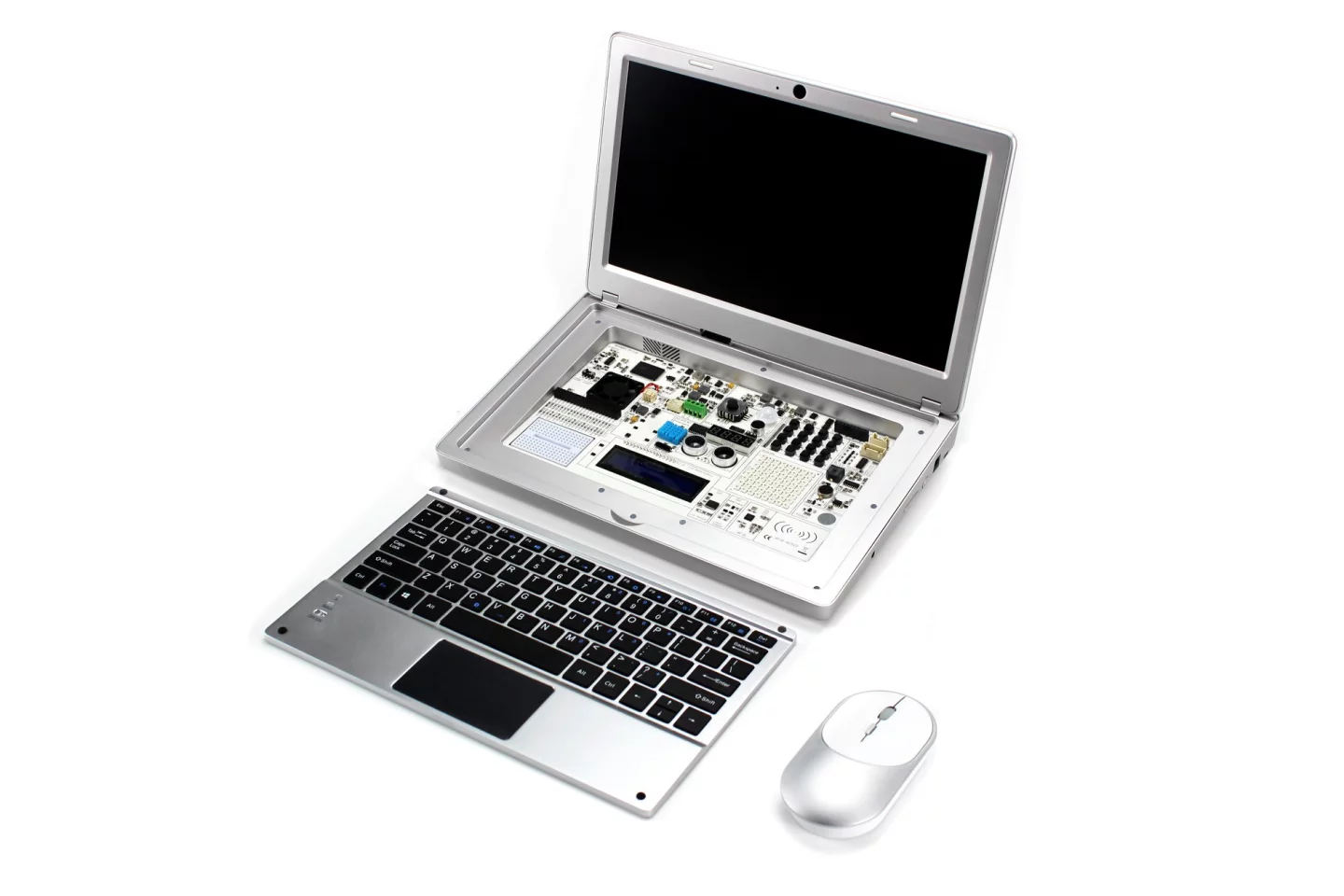Developer of open source hardware and education products Elecrow has launched a Kickstarter to fund production of a chunky Raspberry Pi-based laptop with a STEAM learning lab hidden underneath the removable keyboard.
STEAM stands for Science, Technology, Engineering, the Arts and Mathematics, and is a goal-oriented learning system that encourages independent thinking, develops real-world problem solving skills and promotes teamwork. The 291 x 190 x 46-mm (11.4 x 7.5 x 1.8-in), 1.3-kg (2.8-lb) CrowPi2 can serve as a portable STEAM project lab or a functioning laptop, or both.
An updated version of Elecrow's CrowPi learning lab in a briefcase from 2018, the CrowPi2's QWERTY keyboard can be popped out of the frame and used as a wireless input device for the 11.6-inch 1,920 x 1,080 resolution IPS display. Doing so reveals a project board that's home to 22 sensors, a thumb joystick, an exposed GPIO header from the Pi beneath, a small breadboard, LCD display, RGB LED matrix and more to experiment with hardware electronics and programming.
The idea is to make learning fun and engaging, and over 70 step-by-step lessons on Scratch, Python, AI, and Minecraft are included, along with more than 30 projects and games.
There's a 2-MP webcam and microphone in the center of the top bezel, stereo speakers and a 3.5-mm headphone jack, a wireless mouse is included for those who don't want to use the keyboard's trackpad, and there's space for installing storage, power bank or other components. A stepper motor, mini fan, RFID card and tag, IR remote and more are also supplied to enhance the learning experience.
Kickstarter pledges for those who already have a Pi 4B, 3B+ or 3B lying around start at HKD1,310 (about US$170). A kit including a Pi 4 already installed, two game controllers, programming books and more bumps that up to HKD1,853. If all goes to plan, shipping is estimated to start in August.
Source: Elecrow









